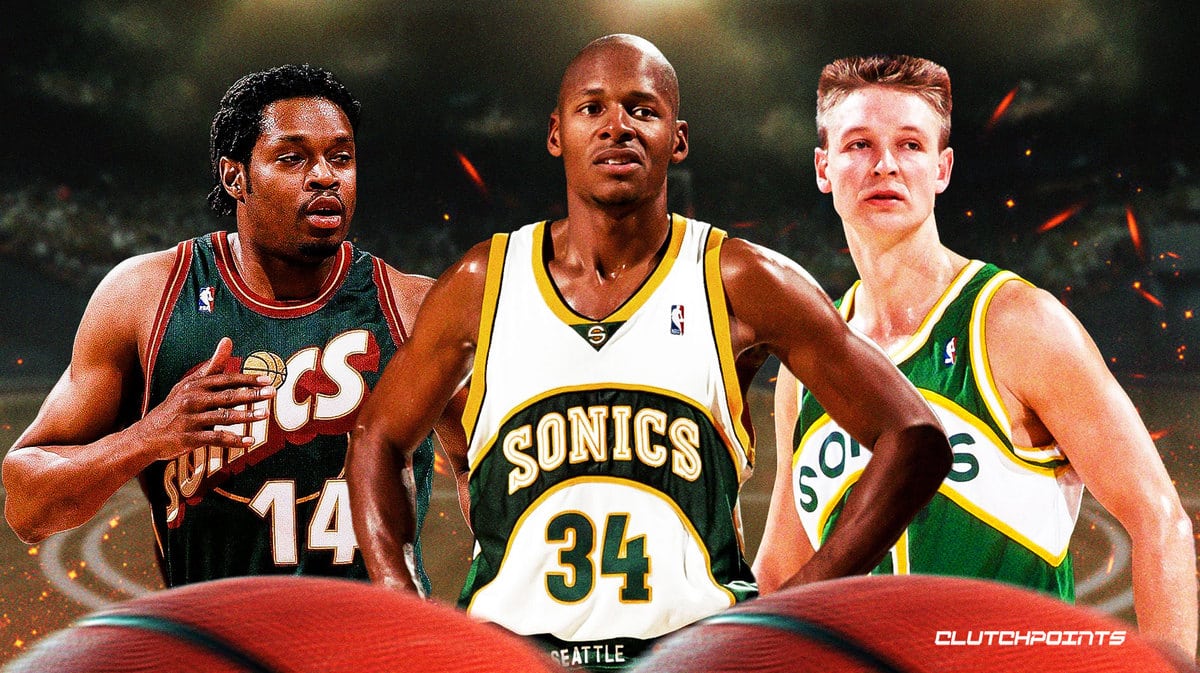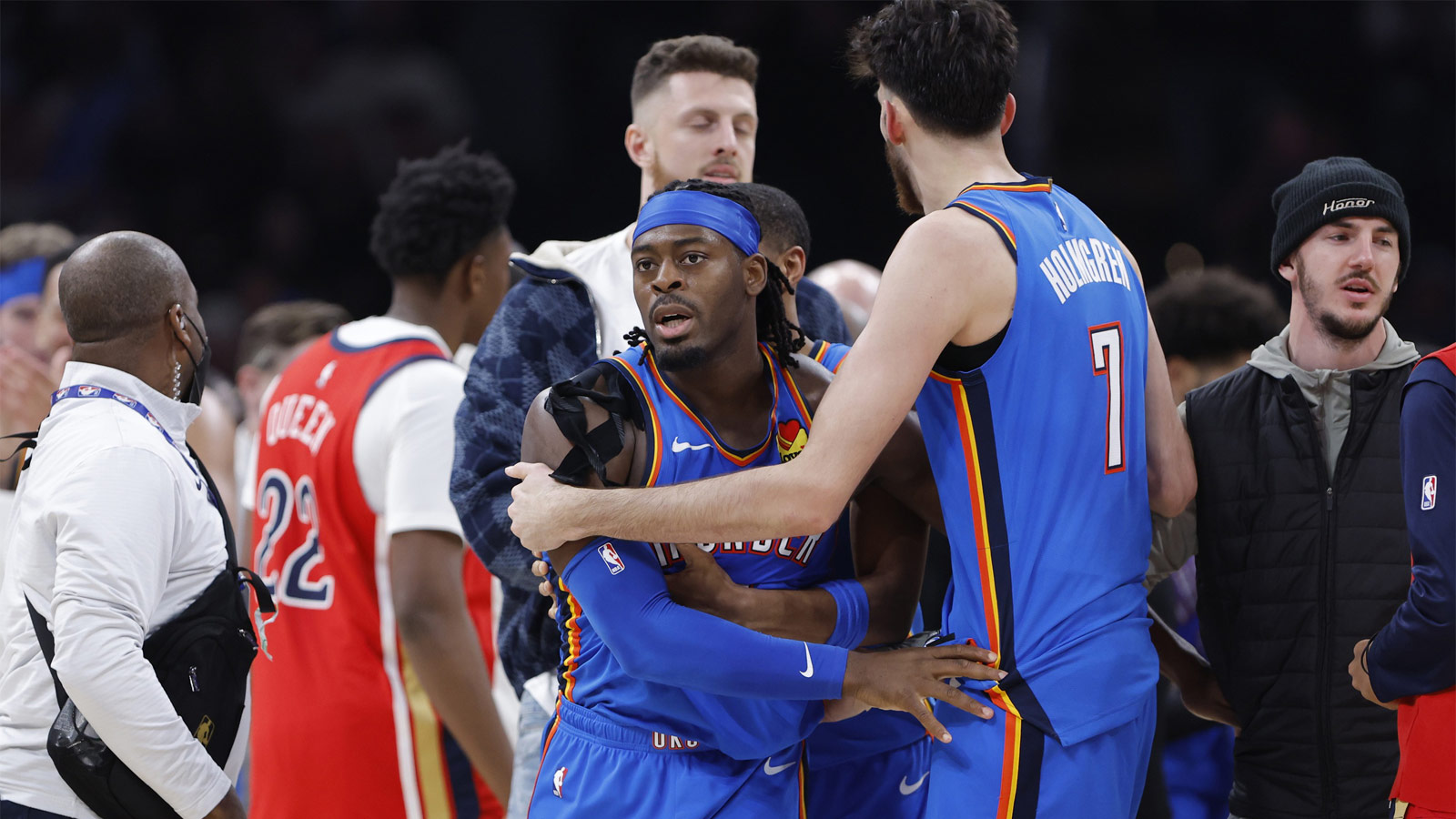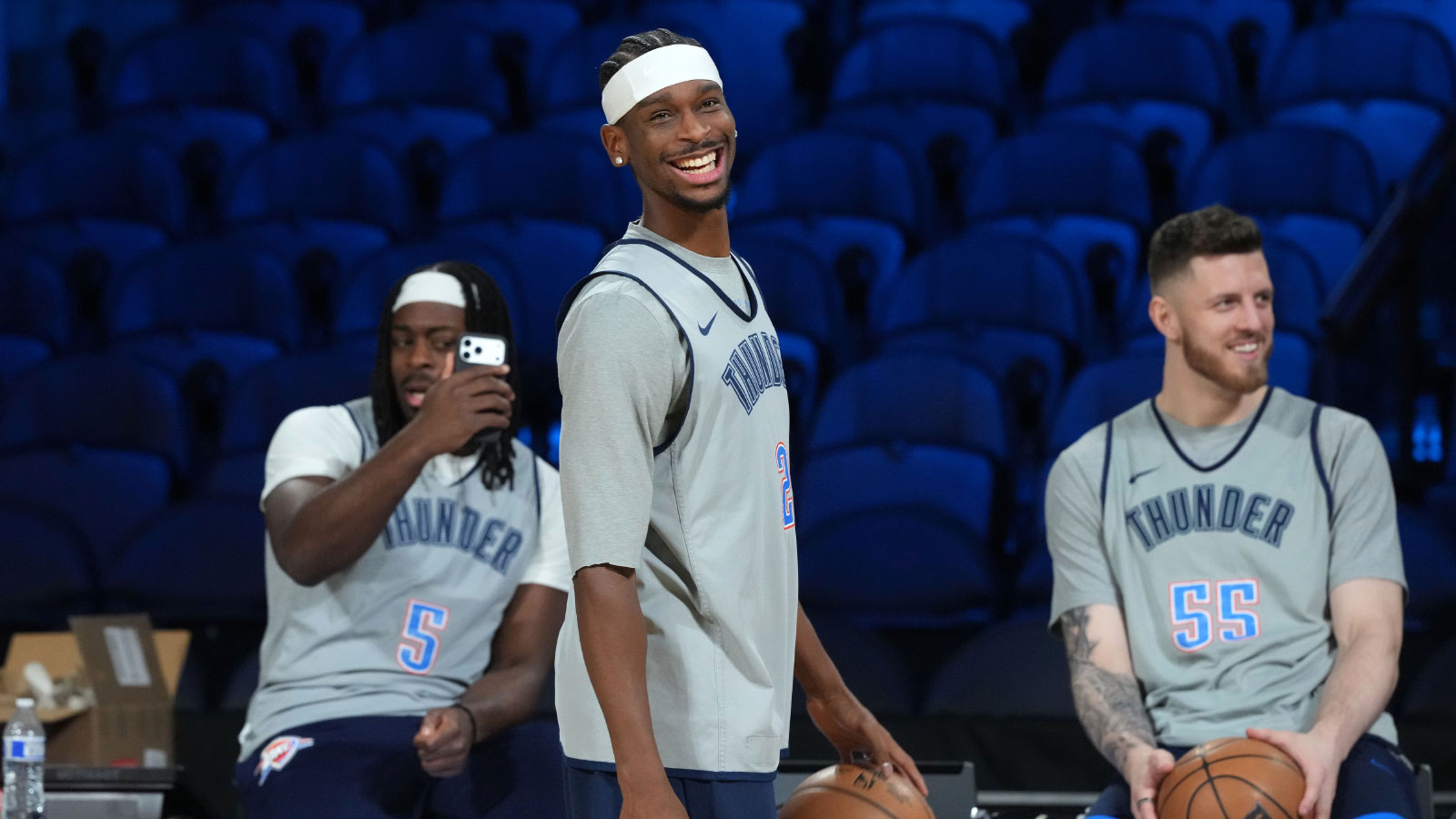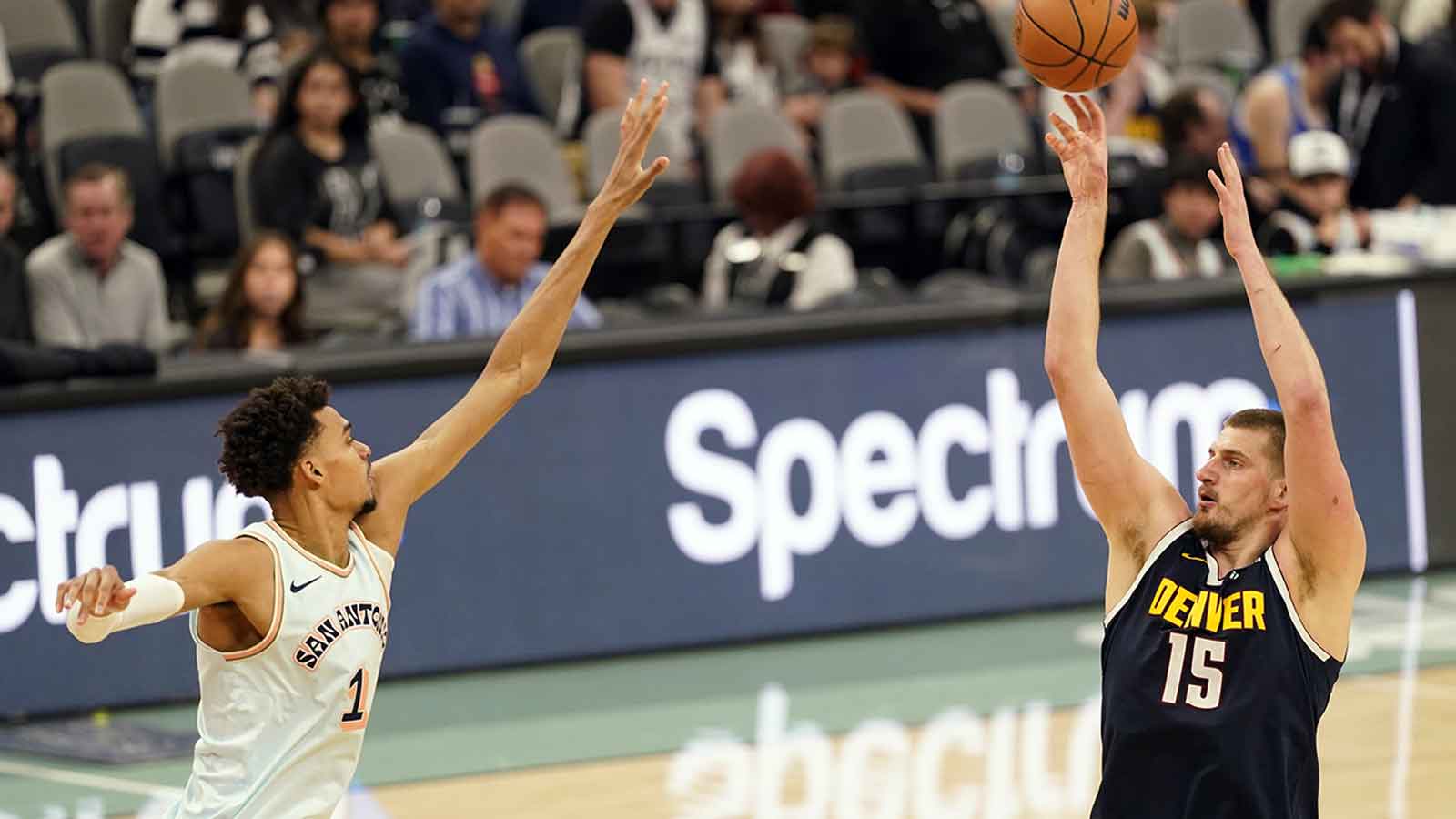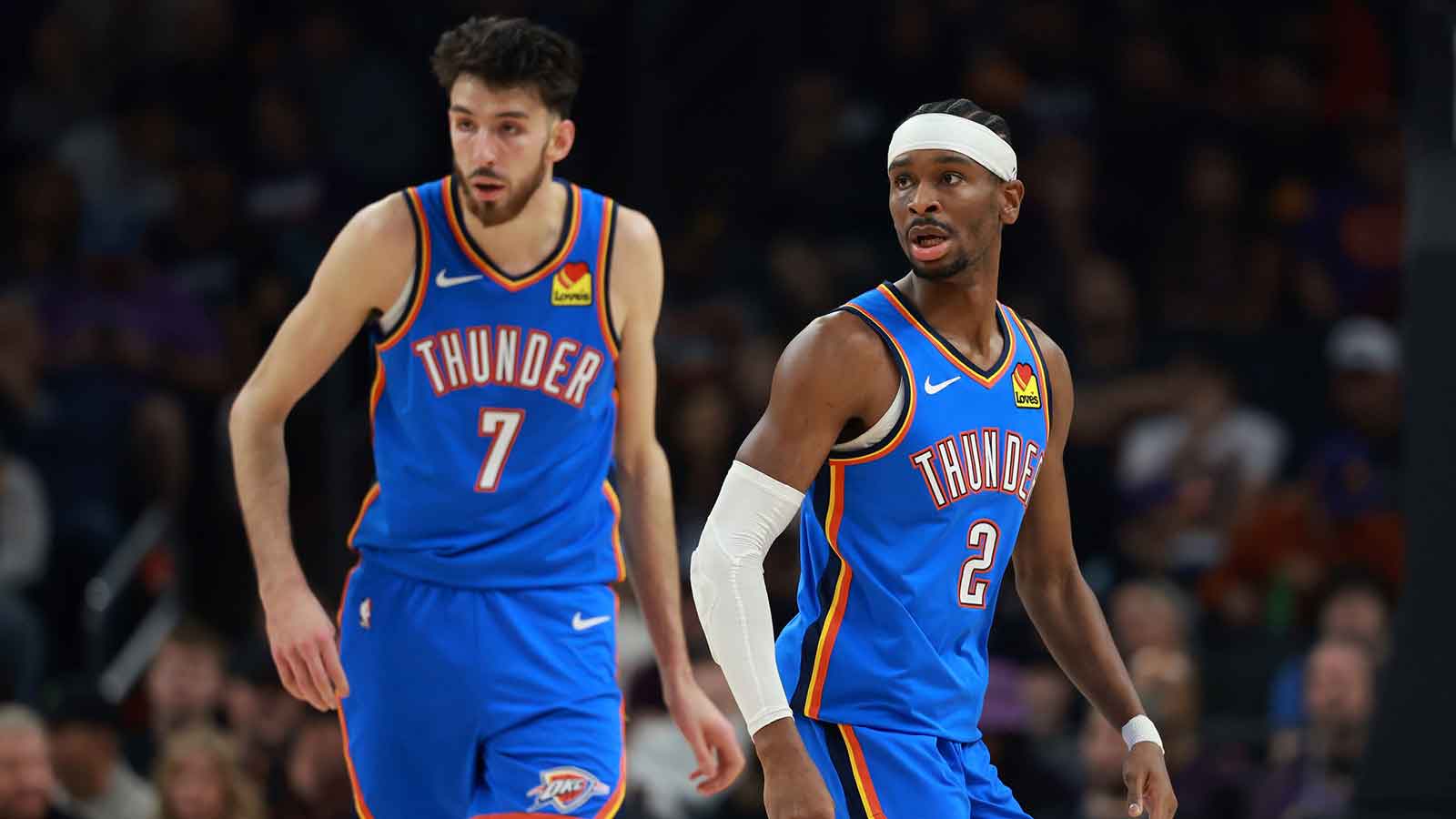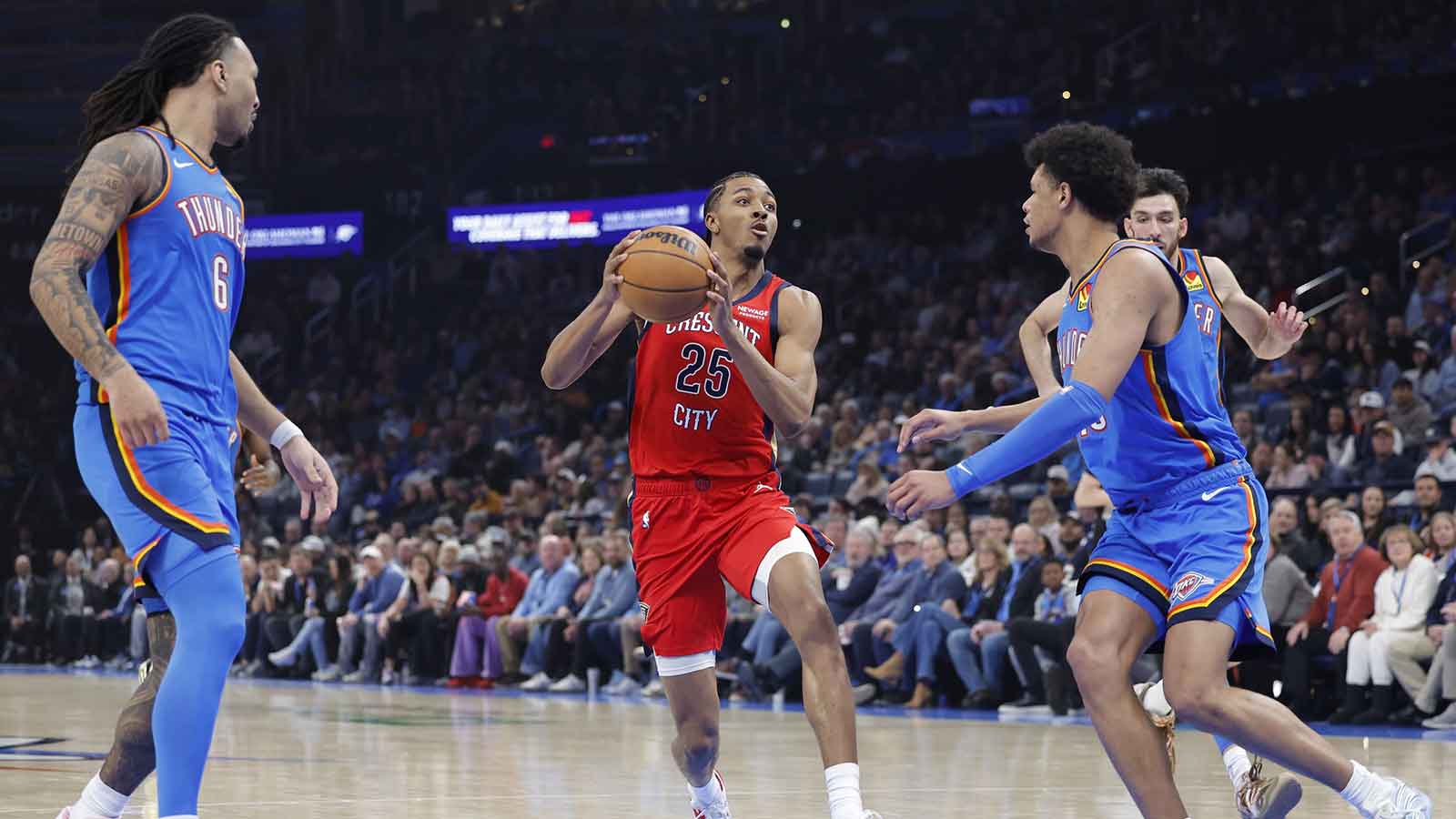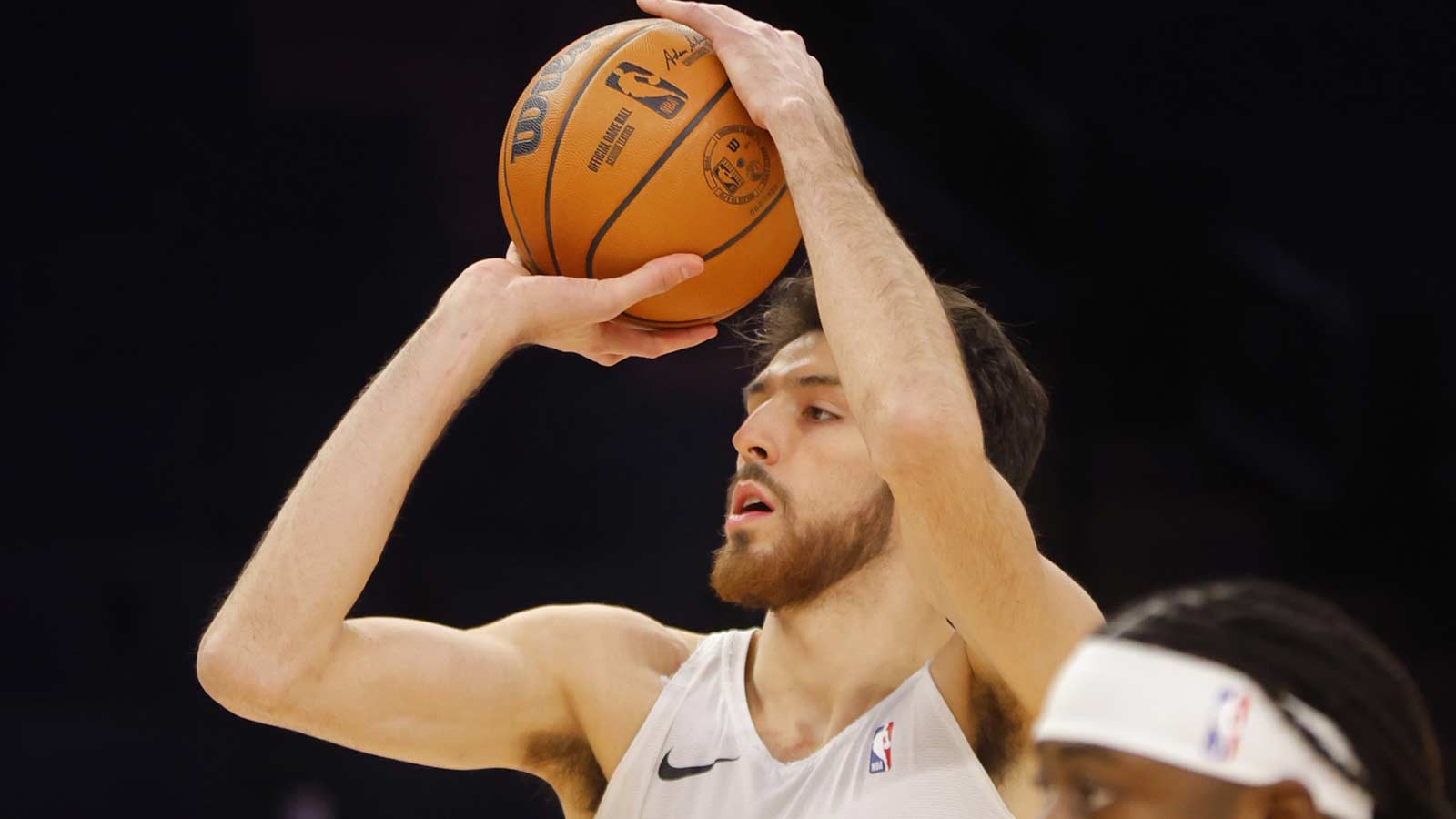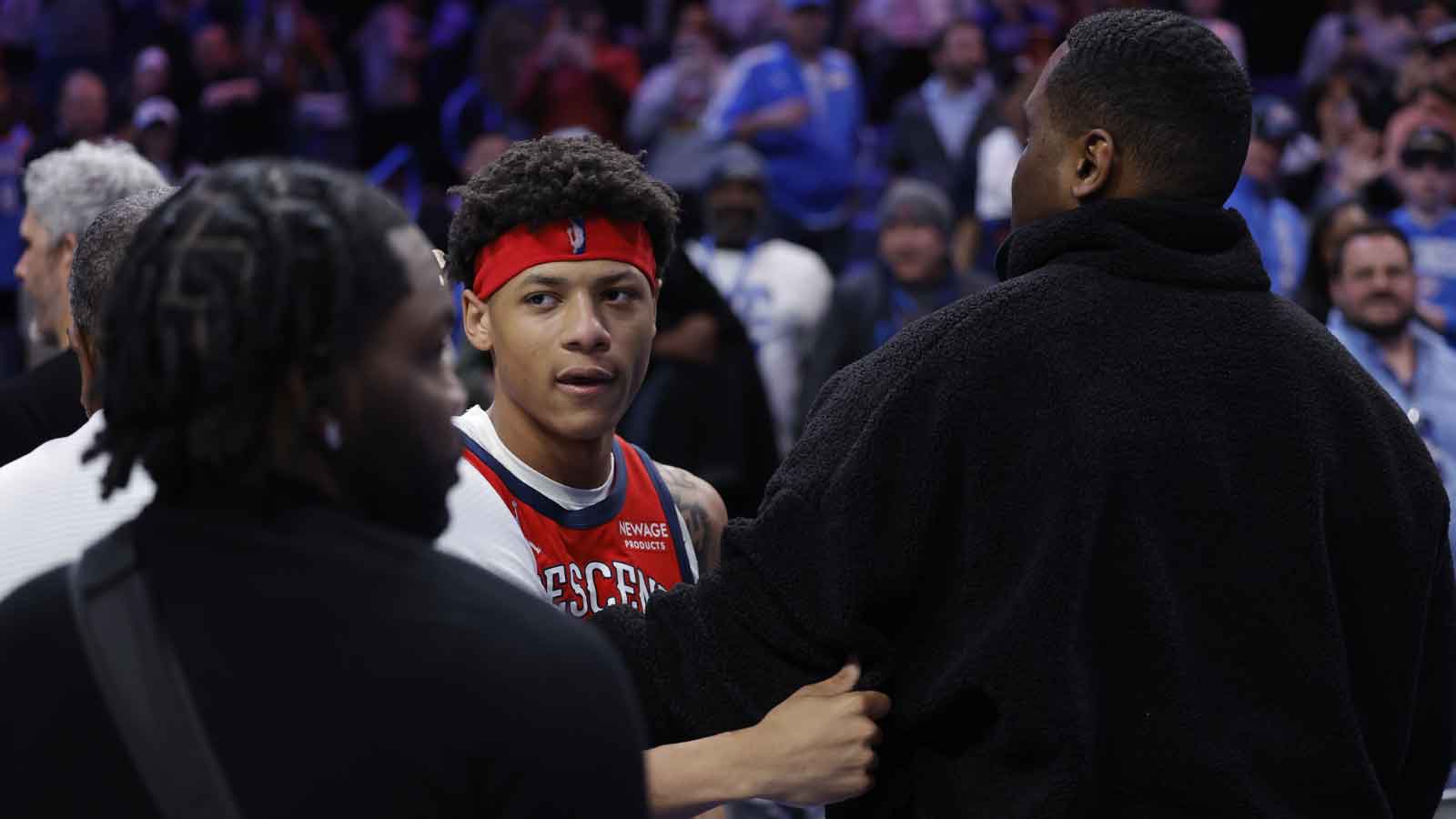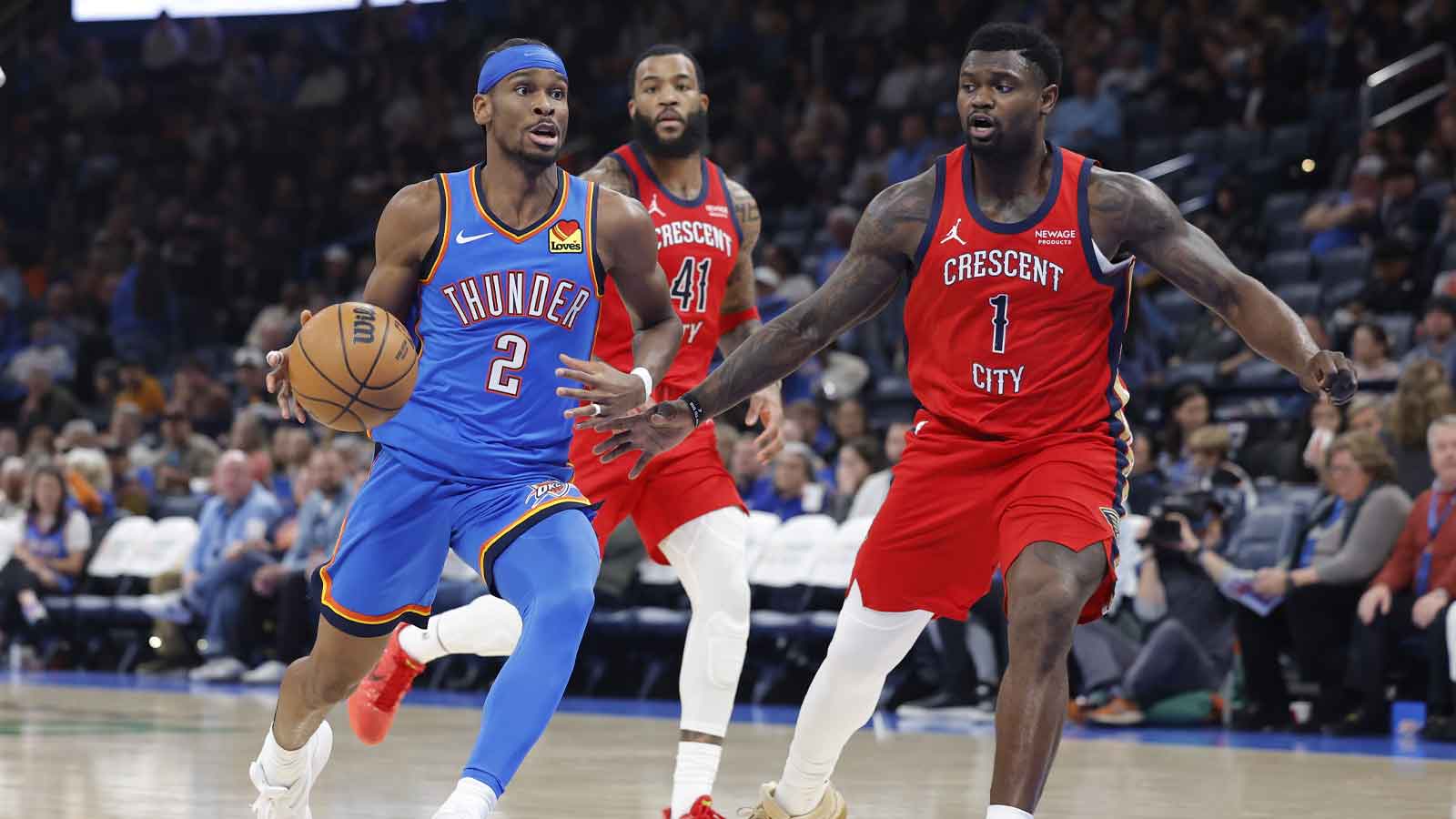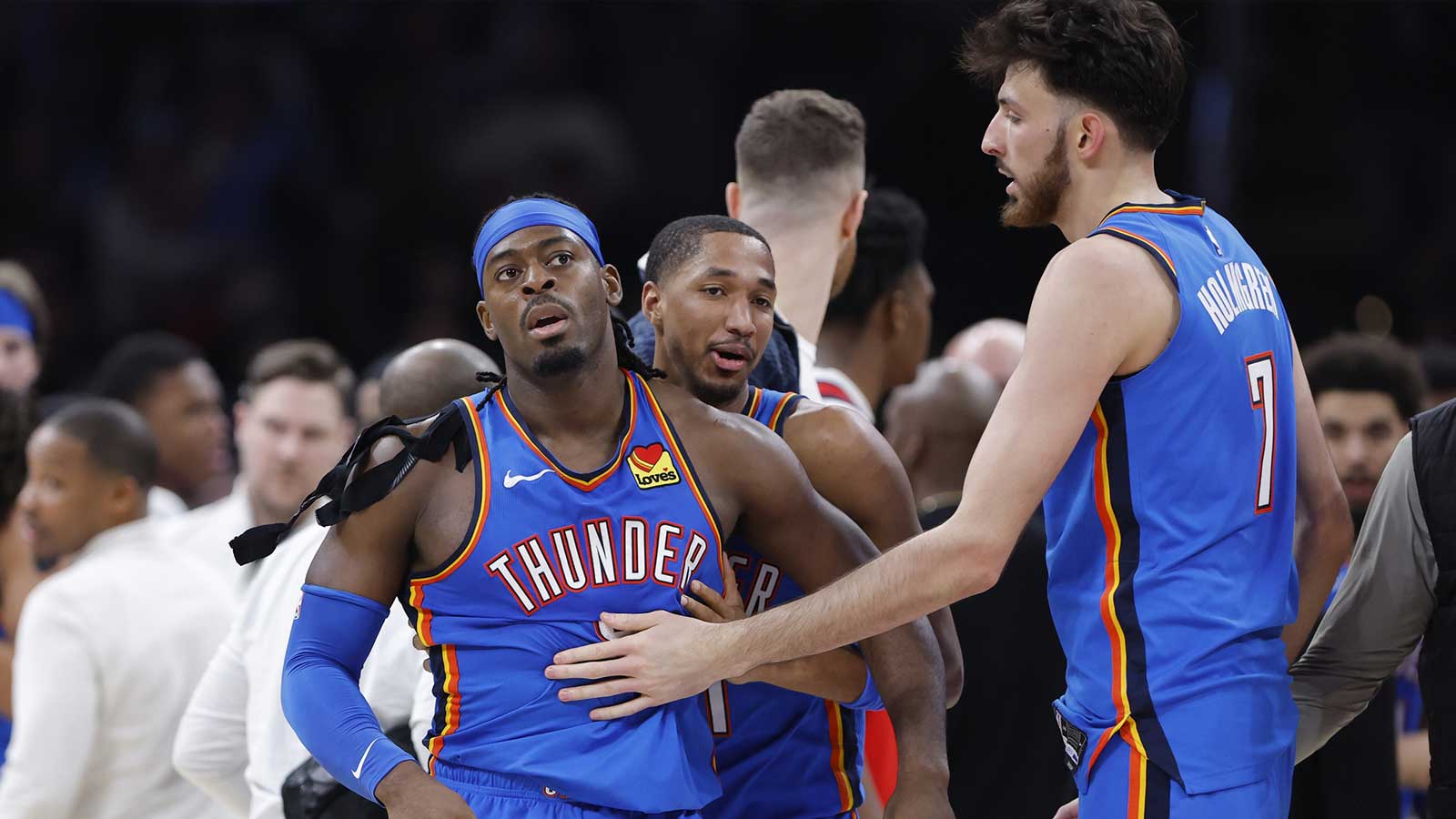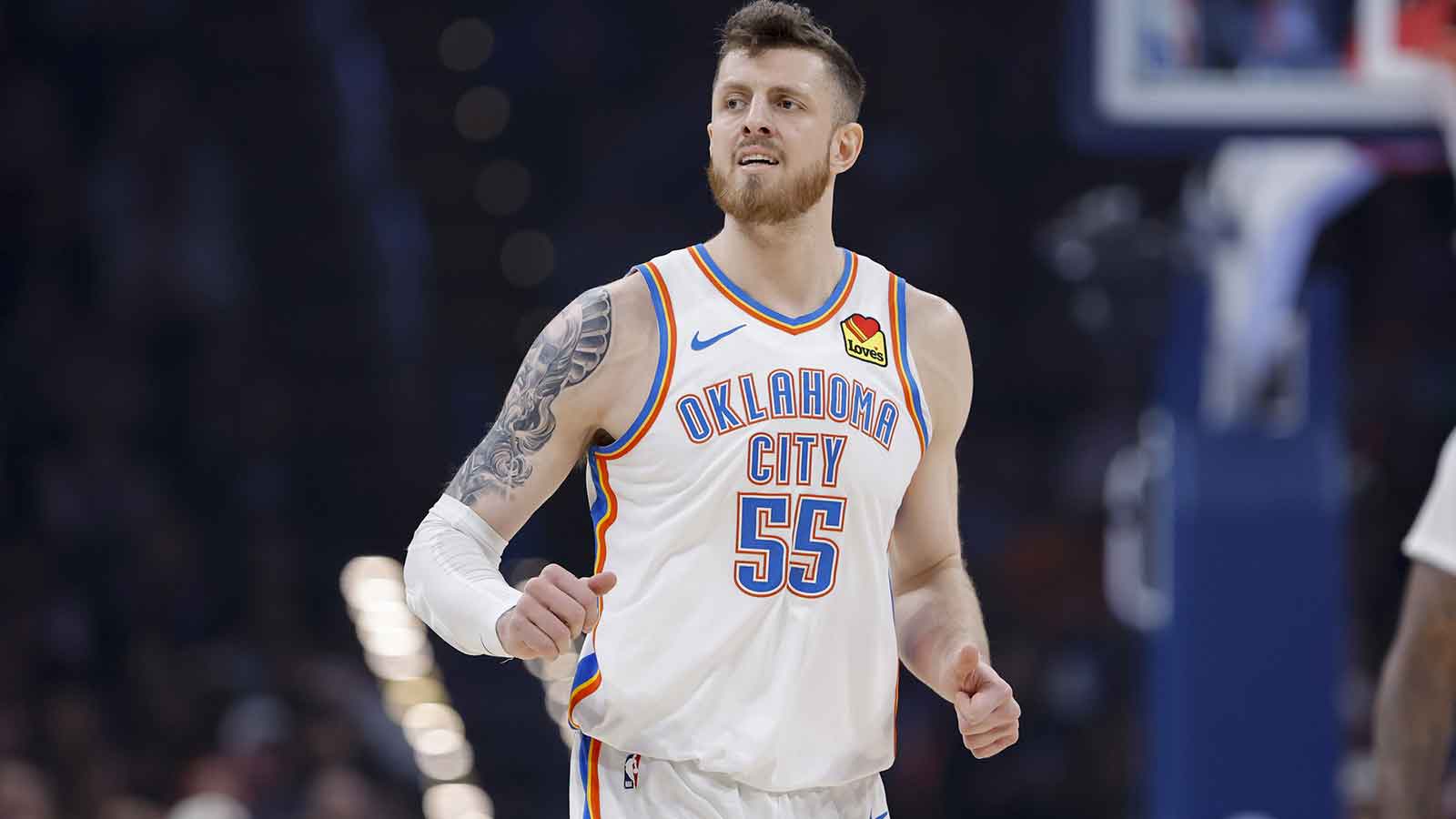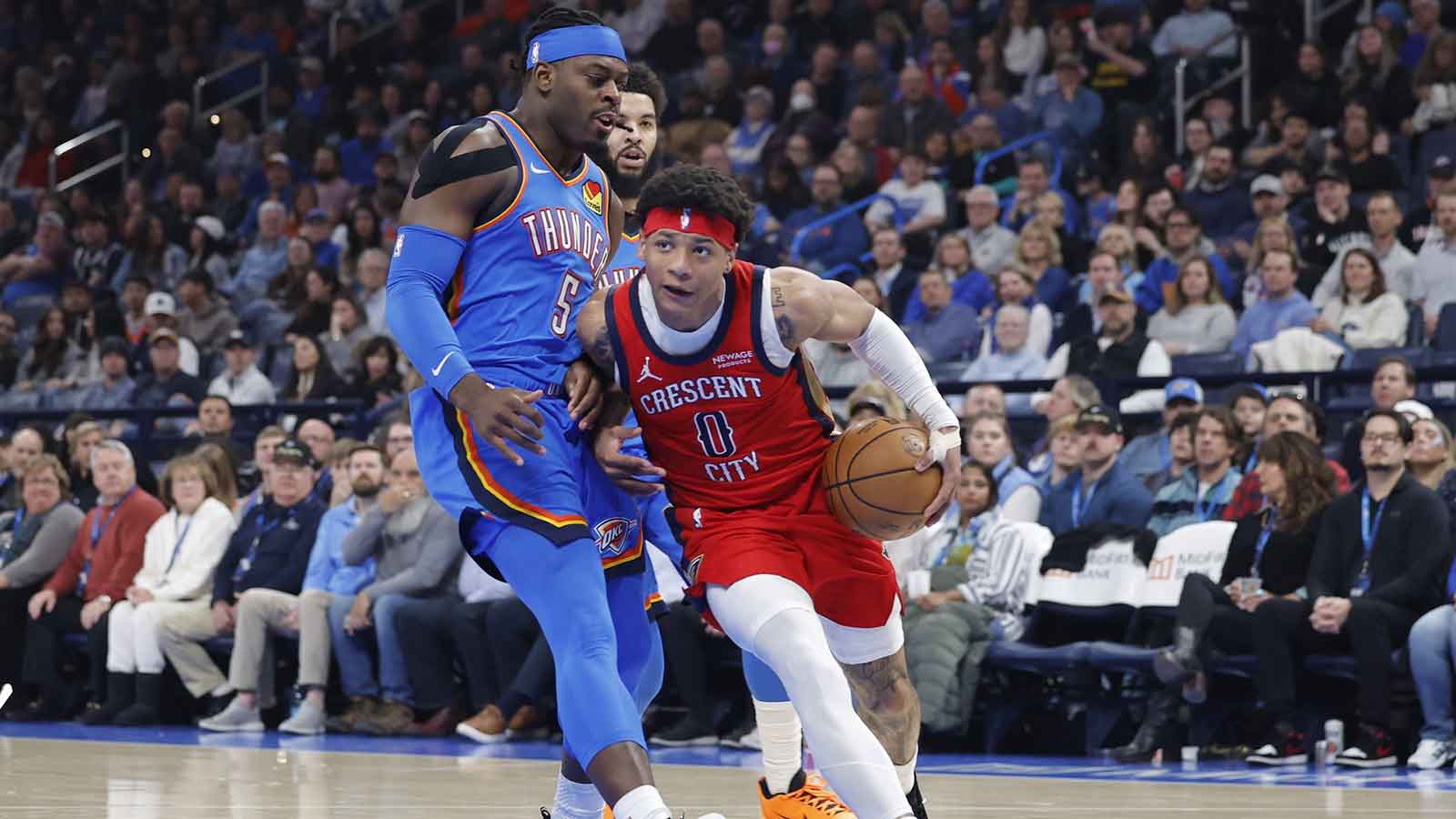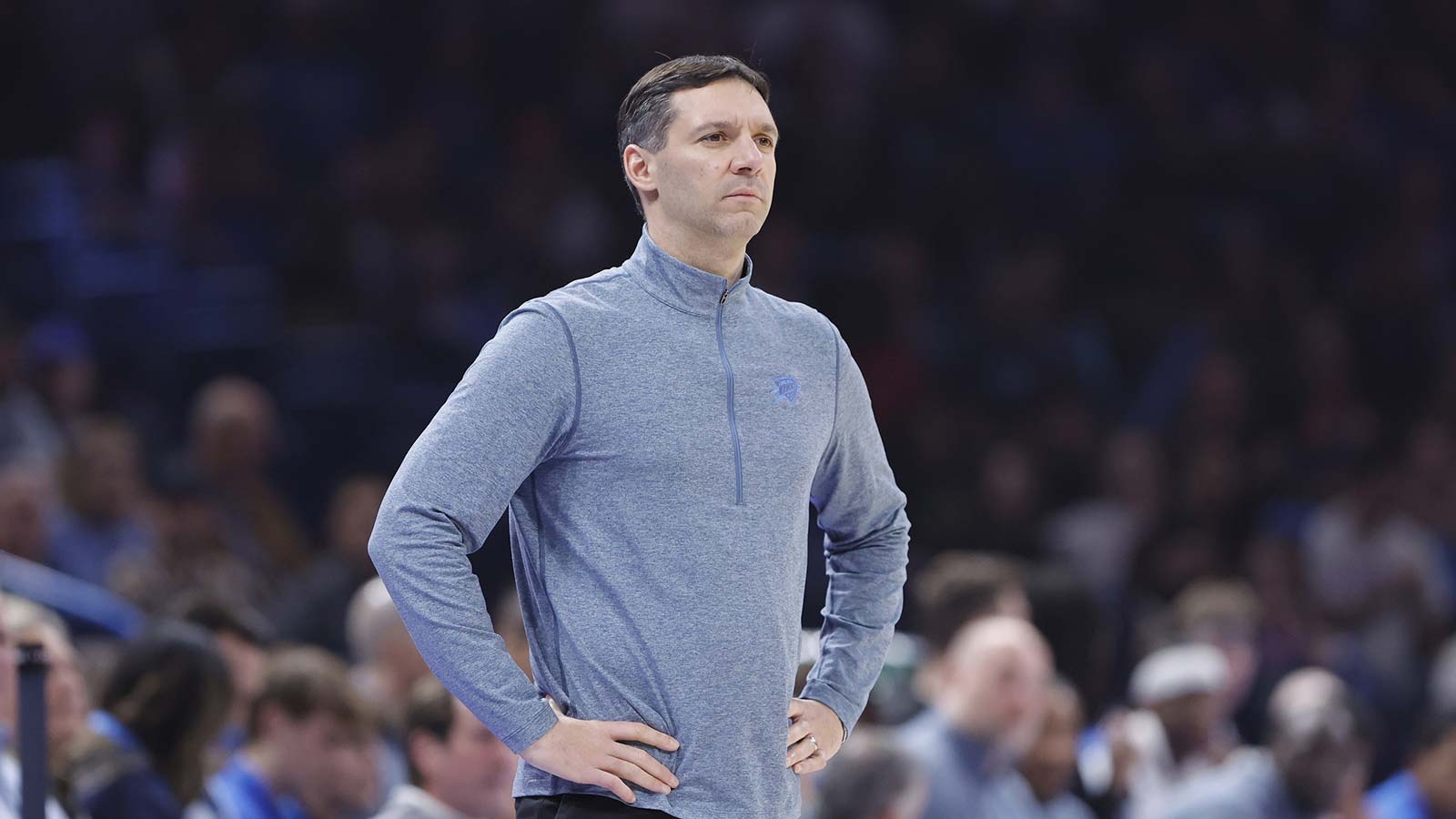The SuperSonics are often known for their botched deals: notably giving up Scottie Pippen on draft night and the minimal return the team got in exchange for Ray Allen. But the Sonics franchise also won the NBA Finals in 1979 (while also making the Finals in '78 and conference finals in '80) and was the third-winningest team in the 1990s, notching an NBA Finals appearance in 1996 while making the playoffs in eight straight years.
Such success doesn't come from sheer luck; it results from smart drafting and shrewd trades. Here are the nine best trades the SuperSonics made while the franchise was in Seattle.
9 best trades in Seattle history, ranked
9) A slam dunk and three-point champ (1999)
The deal: Acquired Brent Barry from the Chicago Bulls for Hersey Hawkins and James Cotton
The Sonics got several good years from Hersey Hawkins, but by 1999, the 33-year-old was in decline. In return, the SuperSonics got Brent Barry. At this point, Barry was most well-known for winning the NBA Slam Dunk Contest in 1996, but he was quietly becoming one of the most lethal shooters in the league. During his five years in Seattle, Barry shot 42.9% from three-point range, including a league-leading 47.6% from deep in 2000-01. He also shot an NBA-best 58.8% from inside the arc the following year while dishing out 5.3 assists/game.
After their successes of the 90s, the SuperSonics were only a .500 team during this stretch. Still, thanks to his shooting and underrated playmaking ability, Brent Barry was one of the more underrated players in the league in the early 2000s.
8) A championship-level frontcourt (1977)
The deal: Acquired Paul Silas, Marvin Webster, and Willie Wise from the Denver Nuggets for Tom Burleson, Bob Wilkerson, and a 1977 second-round draft pick
None of the players involved in this trade ever became stars for their new franchises, but Seattle's acquisitions — Paul Silas in particular — helped propel the team to its first and only NBA Title in 1978-79. Webster was nicknamed “The Human Eraser” for his shot-blocking talent, blocking 2 shots/game and averaging 14 PPG in his sole season with the Sonics in 77-78 as the team reached the NBA Finals for the first time. He also still holds the franchise record with 21 rebounds in a half.
Silas was 34 years old and nearing the end of his career when Seattle traded for him, and while his scoring impact was minimal (5.8 PPG in the championship season), the veteran became the enforcer for a young SuperSonics team. Silas, who also had the experience of winning two titles with the Boston Celtics, brought down more than eight rebounds a game for Seattle, making this trade a win for the Sonics.
7) Building toward a title (1995)
The deal: Acquired Hersey Hawkins and David Wingate from the Charlotte Hornets for Kendell Gill
Kendall Gill was a solid player for the SuperSonics in the mid-90s, averaging 14.3 PPG on a Seattle team that earned the number-one seed in the Western Conference in 1993-94. But by the following season, Gill was feuding with head coach George Karl and the team moved him to Charlotte in exchange for Hershey Hawkins and David Wingate. Wingate was a marginal contributor off the bench, but in Hawkins, the Sonics got a dependable scoring guard with a soft touch from the outside.
Hawkins averaged 12.8 PPG during his four years in Seattle, hitting almost 40% of his treys. He also did not miss a game during his tenure in Washington State while helping the franchise win five playoff series and reach the NBA Finals.
6) The Silent Assassin (1986)
The deal: Acquired Dale Ellis from the Dallas Mavericks for Al Wood
The SuperSonics twice acquired Dale Ellis via trade, the first in 1986 and then more than a decade later in 1997. During his first stretch in Seattle, Ellis was one of the most efficient scorers in the NBA, averaging 25.6 PPG across four seasons while shooting 50.5% from the field. The 6-7 forward was also a prolific three-point shooter, hitting 40.3% of his attempts from deep during his long career.
In exchange for Ellis — who was a bench player during his time in Dallas, the Sonics gave up Al Wood, who played one year with the Mavericks before moving overseas. Ellis, of course, blossomed into a star, though he was never quite the same scorer once he left Seattle in 1991. His departure also coincided with the start of the Gary Payton and Shawn Kemp years in the Pacific Northwest.
5) Big Smooth to the Emerald City (1993)
The deal: Acquired Sam Perkins from the Los Angeles Lakers for Doug Christie and Benoit Benjamin
The SuperSonics were the NBA's young, up-and-coming team in 1993, and the acquisition of Sam Perkins helped propel the franchise to a Western Conference Finals appearance that spring. Perkins, already 31 years old at that point, would post double-digit scoring averages in five of his six seasons in Seattle while becoming a key role player alongside the young core of Gary Payton and Shawn Kemp.
4) The first point forward (1977)
The deal: Acquired John Johnson from the Houston Rockets for a 1979 second-round pick and a 1980 second-round pick
Before the days of Luca Doncic and Nikola Jokic, John Johnson was one of the pioneers of the point-forward role. As a member of the NBA Champions Sonics in 1978-79, Johnson led the team with 4.4 assists per game while also putting up 11 points and five rebounds per contest. The SuperSonics got four successful seasons out of Johnson — including the best three-year playoff run in franchise history — and they got him for only a pair of second-round picks.
3) Fleecing St. Louis for a Hall-of-Famer (1968)
The deal: Acquired Lenny Wilkens from the St. Louis Hawks for Walt Hazzard
The SuperSonics selected Walt Hazzard from the Los Angeles Lakers in the 1967 expansion draft, and he would go on to lead the team with 24 PPG in his debut season. Hazzard would spend one year in Seattle before the franchise traded him to St. Louis in exchange for Lenny Wilkins. Wilkens — a nine-time NBA All-Star — was nearing the end of his Hall of Fame career, but he still managed a pair of All-Star nominations while averaging 19.5 PPG and 9.0 APG. He also led the league with 9.1 assists per contest in 1969-70. By contrast, Hazzard would never eclipse the 20 PPG mark again.
2) Before Dirk, there was Detlef (1993)
The deal: Acquire Detlef Schrempf from the Indiana Pacers for Derrick McKey and Gerald Paddio
After Seattle acquired Sam Perkins in February of 1993, the franchise then went and got Detlef Schrempf from the Indiana Pacers over the summer — a signal to the rest of the league that the Sonics were a legitimate NBA contender. Schrempf averaged 16.6 PPG in his six seasons with the SuperSonics while garnering a pair of All-Star Game invites as a productive third-scorer and playmaker (4.0 assists/game) alongside Payton and Kemp. While Schrempf could not propel the team to an NBA title, Seattle still won an average of 60 games in his five full seasons with the team.
1) Getting the Bucks' prized pelt (2003)
The deal: Acquired Ray Allen, Ronald Murray, Kevin Ollie, and a 2003 first-round draft pick from the Milwaukee Bucks for Desmond Mason and Gary Payton
A deal can often be judged not by what it does for one team, but rather by what it does to the other. The Milwaukee Bucks were two years removed from an Eastern Conference Finals appearance in 2001 (pushing the Philadelphia 76ers to seven games). The franchise would not win another playoff series until 2019.
As for the Sonics, Ray Allen fully established himself among the NBA's elite, averaging at least 23 PPG in each of his four full seasons with the Sonics while earning All-Star nods in each of them. Seattle only made one playoff appearance during Allen's tenure, but getting a future Hall-of-Famer in his prime in return for a declining 34-year-old Gary Payton is one of the trade steals of the 21st century.

